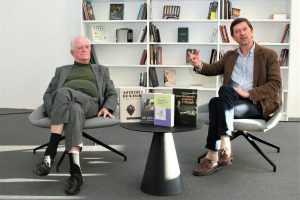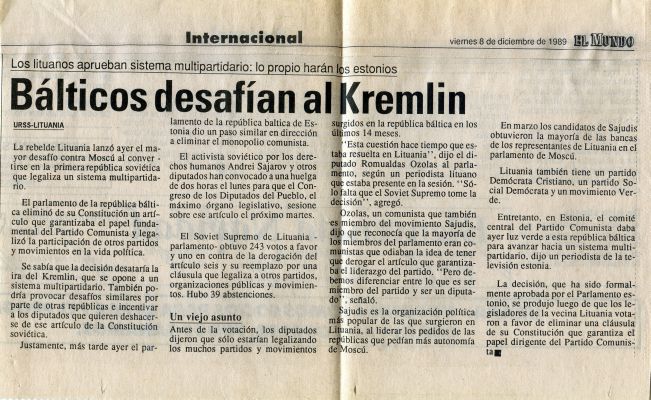GIACOMO DEVOTO
By Jacopo Baiocchi
Giacomo Devoto was an Italian historical linguist and one of the greatest exponents of the twentieth century. He was born in Genova on July 19, 1897.
In 1915, after finishing his studies in Milan, he enrolled at the department of literature in Pavia. Due to World War I, Devoto was forced to stop his studies. He graduated from the university in 1920 with a thesis on the phonetic derangement in India and Romania. The same year he travelled to Berlin, where he attended a few courses by Wilhelm Schulze, Julius Pokorny and Heinrich Luders, dedicated respectively to Lithuanian, Irish and Sanskrit languages. That was Devoto’s first contact with Lithuanian culture. Later, in 1923 in Basel, he took courses of Iranian, Lithuanian, Greek and ancient Latin. In 1924, Devoto attained free teaching and started teaching two years later, in 1926.
 In 1931, Instituto per l’Europa orientale (Institute for Eastern Europe) appointed him to manage magazine Studi Baltici. In order to be able to do his job properly, Devoto tried to strengthen his knowledge of Baltic languages. In fact, in 1933, he went to Lithuania to study Lithuanian. While he was there he also taught at the University of Kaunas for about two months in French and probably Italian. Devoto travelled North twice, where he met some of the greatest Baltic scholars of that time. Because of the war, in 1942 the magazine was temporarily closed. In 1952, it started to be published again. Its last issue came out in 1969.
In 1931, Instituto per l’Europa orientale (Institute for Eastern Europe) appointed him to manage magazine Studi Baltici. In order to be able to do his job properly, Devoto tried to strengthen his knowledge of Baltic languages. In fact, in 1933, he went to Lithuania to study Lithuanian. While he was there he also taught at the University of Kaunas for about two months in French and probably Italian. Devoto travelled North twice, where he met some of the greatest Baltic scholars of that time. Because of the war, in 1942 the magazine was temporarily closed. In 1952, it started to be published again. Its last issue came out in 1969.
In 2004, all Devoto’s works were gathered in a book, Scritti baltistici (Baltistikos raštai), written in two languages, Lithuanian and Italian.
After the war, in 1945, Devoto founded the “Circolo linguistico fiorentino” (Florentine Language Club). He received and successfully completed many important assignments related to cultural and political topics.
Devoto died on December 25, 1974. Continue reading “Italian Input to Lithuanian Culture during the Interwar Period”

 “The rebel Lithuania,” a December 1989 El mundo article begins. Although most people can point to the early 1990s as the era when the Soviet Union fell, we sometimes forget about the internal changes that once made international news. In the late 1980s and early 1990s, Lithuania made strides towards independence while newspapers across the world discussed these historic, unprecedented moves. This phenomenon makes it exciting and fascinating to read an article like this one from late 1989 Spain. The main headline reads “Baltics challenge the Kremlin,” and the article describes how the Lithuanian parliament voted in favor of abolishing an article of the Constitution that guaranteed the political monopoly of the Communist Party and thus instituting a multi-party system. As the article states, “It was well known that this decision would unleash the ire of the Kremlin, which is opposed to a multi-party system. It [the decision] could also provoke similar challenges in the other republics and incentivize the members of parliament who want to undo this article of the Soviet Constitution.”
“The rebel Lithuania,” a December 1989 El mundo article begins. Although most people can point to the early 1990s as the era when the Soviet Union fell, we sometimes forget about the internal changes that once made international news. In the late 1980s and early 1990s, Lithuania made strides towards independence while newspapers across the world discussed these historic, unprecedented moves. This phenomenon makes it exciting and fascinating to read an article like this one from late 1989 Spain. The main headline reads “Baltics challenge the Kremlin,” and the article describes how the Lithuanian parliament voted in favor of abolishing an article of the Constitution that guaranteed the political monopoly of the Communist Party and thus instituting a multi-party system. As the article states, “It was well known that this decision would unleash the ire of the Kremlin, which is opposed to a multi-party system. It [the decision] could also provoke similar challenges in the other republics and incentivize the members of parliament who want to undo this article of the Soviet Constitution.”